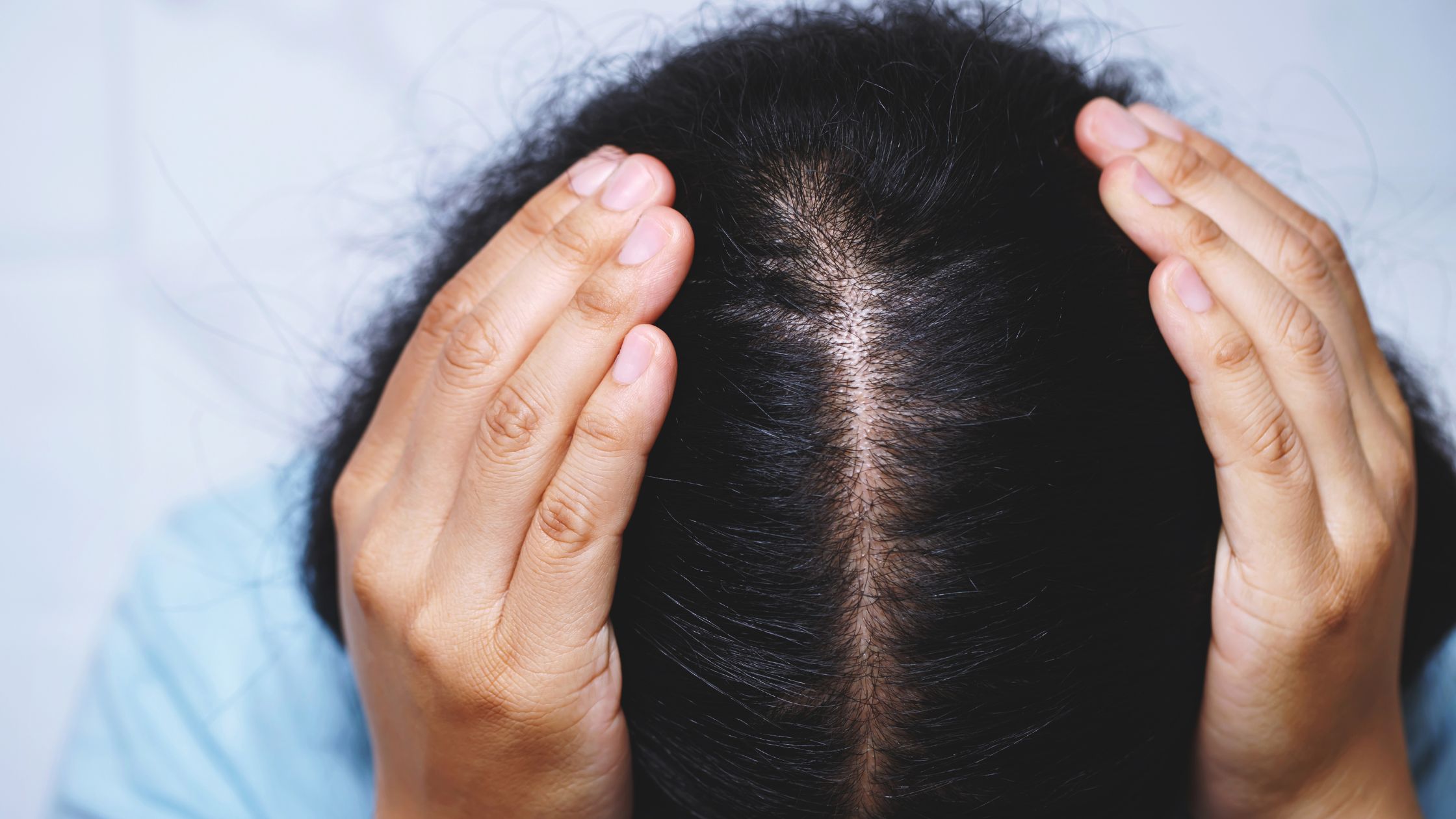
Ayurvedic hair products have gained immense popularity for their promise of natural, holistic care derived from ancient Indian medicinal practices. These products are marketed as pure, natural, and free from harmful chemicals, aligning perfectly with the modern consumer’s desire for organic and eco-friendly options. However, a closer examination reveals that many Ayurvedic hair products contain synthetic additives that contradict their natural claims. This blog delves into the truth about these artificial additives, their implications, and how to make informed choices.
Understanding Ayurveda and Its Principles
Ayurveda, a traditional system of medicine that originated in India over 5,000 years ago, emphasizes balance in the body, mind, and spirit through diet, herbal treatment, and yogic breathing. Ayurvedic hair care products are typically formulated using natural ingredients like herbs, oils, and plant extracts that have been used for centuries to promote hair health.
Core Principles of Ayurvedic Hair Care
- Personalized Care: Ayurveda advocates individualized treatments based on one’s dosha (body constitution) – Vata, Pitta, or Kapha.
- Natural Ingredients: The ingredients are derived from nature and include herbs like Bhringraj, Amla, and Neem and oils like coconut and sesame.
- Holistic Approach: Emphasis on overall well-being rather than treating symptoms in isolation.
The Reality of Synthetic Additives in Natural Hair Products
Despite claims of being ‘natural,’ many Ayurvedic hair products contain synthetic additives that can negatively affect hair health. These additives are often added to enhance the product’s fragrance, texture, or shelf life. However, their long-term use can lead to various hair problems.
One common synthetic additive in Ayurvedic hair products is sodium lauryl sulfate (SLS). SLS is a surfactant that creates lather and is used in many shampoos to remove dirt and oil from the hair. While it may effectively clean the hair, SLS can also strip away the natural oils produced by the scalp, leading to dryness and increased hair breakage.
Another synthetic additive to watch out for is synthetic fragrance. Many hair products use artificial fragrances to create a pleasant scent. However, these fragrances are often made from a combination of synthetic chemicals that can irritate the scalp and cause allergic reactions in some individuals.
Common Synthetic Additives Found
- Preservatives: Parabens, phenoxyethanol, and benzyl alcohol are commonly used to extend shelf life.
- Fragrances: Synthetic fragrances are often added to enhance the product’s scent.
- Colorants: Artificial dyes are used to achieve a consistent color.
- Emulsifiers and Stabilizers: Compounds like PEGs (polyethylene glycols) help blend oil and water-based ingredients.
Why Are They Used?
- Shelf Life: Natural products without preservatives have a shorter shelf life, which is not commercially viable.
- Consistency: Synthetic additives help maintain product consistency and appearance.
- Cost: Synthetic ingredients are often cheaper than natural ones.
Health Implications of Synthetic Additives

Using Ayurvedic hair products that contain synthetic additives can pose certain risks and side effects. These risks can vary depending on the individual’s hair type, sensitivity, and overall health. It is crucial to be aware of these potential risks before incorporating such products into your hair care routine.
- One common side effect of synthetic additives is scalp irritation. The chemicals present in these additives can cause redness, itching, and scalp inflammation. This can lead to discomfort and even worsen scalp conditions such as dandruff or eczema.
- Synthetic additives can also disrupt the natural balance of the scalp and hair. As mentioned earlier, ingredients like SLS can strip away the natural oils produced by the scalp, leading to dryness and increased hair breakage. Over time, this can result in weakened hair and a dull appearance.
- Furthermore, some synthetic additives have been associated with long-term health concerns. For example, certain preservatives used in hair products, such as parabens, have been linked to hormone disruption and potential carcinogenic effects. While the exact risks may vary, it is crucial to be cautious and choose hair products that prioritize natural and safe ingredients.
To minimize potential risks and side effects, opt for authentic Ayurvedic hair products free from synthetic additives. Look for certifications and labels that indicate the product is organic and natural. Additionally, consider conducting a patch test before using a new product to check for any adverse reactions.
Read More- 5 Hair Care Myths You Thought Were True (But Aren’t!)
Case Studies and Research Findings
Research has highlighted the presence of synthetic additives in products labeled as natural or Ayurvedic. A study by the Environmental Working Group (EWG) found that many products marketed as natural contained undisclosed synthetic chemicals. Another investigation by the Campaign for Safe Cosmetics revealed that products labeled as organic or natural often contained synthetic preservatives and fragrances.
Specific Examples
- Bhringraj Hair Oil: Marketed as an Ayurvedic solution for hair growth, some brands have been found to contain synthetic preservatives like phenoxyethanol.
- Amla Hair Shampoo: Despite being promoted as an herbal shampoo, certain products contain sodium lauryl sulfate (SLS), a synthetic detergent and surfactant.
Regulatory Oversight and Loopholes
The cosmetic industry, including Ayurvedic and natural products, is subject to varying levels of regulation depending on the country. However, the lack of stringent regulations and loopholes allows manufacturers to include synthetic additives while still labeling their products as natural.
Regulatory Bodies
- FDA (Food and Drug Administration): The FDA regulates cosmetics in the United States but does not require pre-market approval.
- EU Cosmetics Regulation: The European Union has stricter regulations, banning certain harmful substances and requiring safety assessments.
- Ayush (India): In India, the Ministry of Ayurveda, Yoga, Naturopathy, Unani, Siddha, and Homoeopathy (AYUSH) oversees Ayurvedic products but faces challenges in enforcing compliance.
Labeling Loopholes
- ‘Natural’ Claims: Products can be labeled as natural if they contain some natural ingredients, even if synthetic additives are present.
- Ingredient Disclosure: Manufacturers are not always required to disclose all ingredients, especially those considered trade secrets.
How to Identify Truly Natural Ayurvedic Products
With the wide range of Ayurvedic hair products, choosing authentic and truly natural options can be challenging. To help you make informed choices, here are some tips for selecting genuine Ayurvedic hair products:
Read the ingredient list: Carefully read the ingredient list to ensure that the product is free from synthetic additives such as parabens, sulfates, and artificial fragrances. Look for natural ingredients like herbs, oils, and minerals.
Research the brand: Conduct thorough research on the brand before purchasing its products. Look for brands that prioritize transparency, sustainability, and ethical sourcing of ingredients.
Look for certifications: Check for certifications and labels that indicate the product is organic and free from synthetic additives. Examples of certifications include USDA Organic, Ecocert, and COSMOS Organic.
Consider the packaging: Authentic Ayurvedic hair products are often packaged in environmentally friendly glass or recyclable plastic. Avoid products that use excessive packaging or single-use plastics.
By following these tips, you can navigate the vast array of Ayurvedic hair products and choose authentic, natural, and beneficial options for your hair health.
Choose Root and Leaf for Organic Hair Care Solution
When it comes to selecting an organic hair care solution, Root and Leaf stands out as a trusted brand that offers authentic Ayurvedic products. Root and Leaf is committed to providing high-quality hair care products free from synthetic additives and harmful chemicals.
Root and Leaf’s products are formulated using natural ingredients sourced from organic farms. These ingredients are carefully processed to retain their beneficial properties and ensure maximum efficacy.
Conclusion
While Ayurvedic hair products offer a natural and holistic approach to hair care, it is essential to be aware of the potential presence of synthetic additives. By understanding the implications of these additives and learning how to identify truly natural products, consumers can make more informed choices that align with their health and wellness goals. Always read labels carefully, research brands thoroughly, and consider making your own products to ensure the purity and authenticity of your Ayurvedic hair care regimen.
